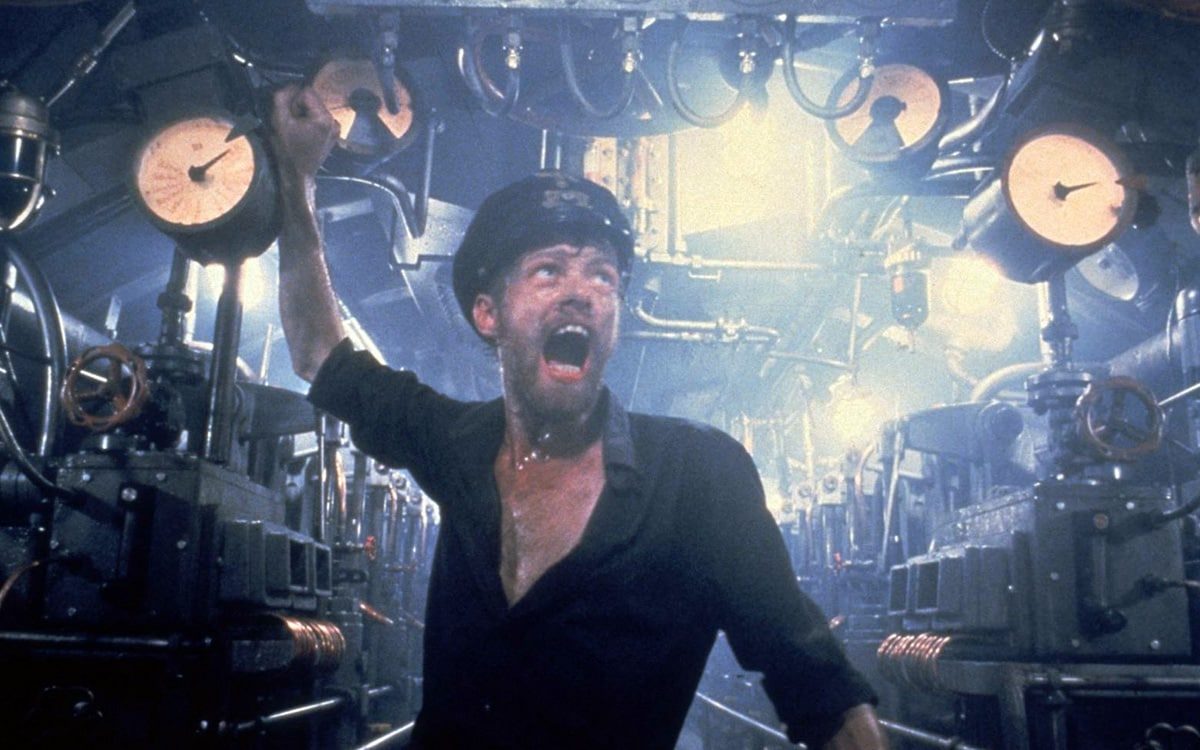Das Boot by Wolfgang Petersen (Review)

Contrary to popular opinion, Das Boot is not a war movie. Sure, it does take place during World War II and has battles and explosions and whatnot. But at its very heart, Das Boot is a story of humanity struggling to retain dignity and honor while facing the horrors of war.
It’s a tale that’s been told many times before, most notably in another German work, All Quiet On The Western Front. A group of fresh recruits goes off to war full of jingoism and ideology, only to return as scarred veterans. It’s a veritable goldmine for any potential writer or filmmaker, because it evokes such strong reactions and deals with universal issues like honor, bravery, and the loss of innocence.
Das Boot is no different than any other such stories, except for the added dimension of also being a psychological thriller. We, the audience, are put right inside the submarine alongside the characters, inside the actual nooks, crannies, and passages that the crew has to go through. Although not immediately apparent, we soon get the same feelings of claustrophobia that the crew goes through (especially now that I think about it after having seen the film).
And unlike many films, sound is as important, and at times, even more important than the visuals. On a submarine, the only sense available is sound, as you glide underneath the waves. You listen for the enemy and hope they don’t hear you. During Das Boot, there are long stretches of silence, broken only by the sounds of sonar, depth charges, and the creaks and pops of the hull as the sub descends deeper and deeper into the water. It all creates a very tense atmosphere, while we wait for someone to snap, someone to break the silence.
But as I said, at its heart, Das Boot is a story of humanity. The most powerful sequences, for me, weren’t the battle scenes, while we watch the crew rush through the cramped spaces in a harried dance. Nor were they the psychological scenes, as the camera slowly passes over the faces of the crew as they’re bombarded with depth charges.
The most striking sequences, and they were few and far between, involve watching these terrified men break down and show the smallest bits of compassion. There’s the scene of one sailor telling another of his French girlfriend, afraid of what will happen when the French Partisans discover their child. Or when two of the sailors are sharing photographs, looking at a life that seems utterly out of reach and alien in their current circumstances. We watch the captain reach out to his crew, most of them young and inexperienced, providing them with a father figure. And we watch the efforts of a sailor to redeem himself after previously snapping under the stress and putting the entire ship at risk.
To me, it’s these small episodes that really support this film. Without these familiar episodes, the movie would be far too long (it’s almost three hours in length) and filled with suspense, with little or no payoff. That being said, I did feel slightly disappointed at the film’s end.
The crew of boys returns home, albeit as men who have seen the horrors of war and have survived. To their chagrin, they discover that the war still won’t leave them alone. It seems a little too poetic and fitting — if that makes any sense — especially the very final scenes. But the rest of the film is outstanding, not as a war movie, but as a movie about humanity and compassion. It’s those seemingly insignificant moments of love and camaraderie in the face of atrocity that really give Das Boot its epic feel.
